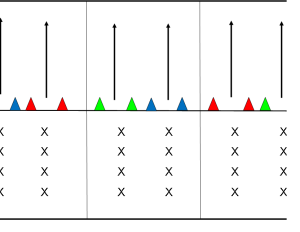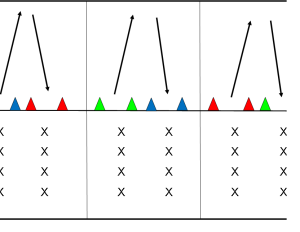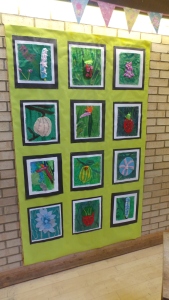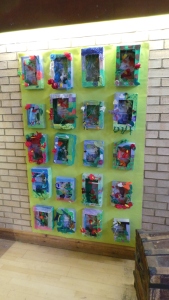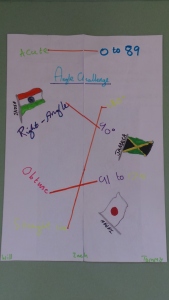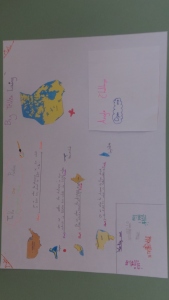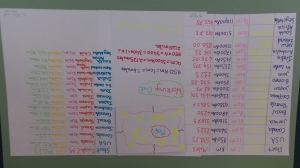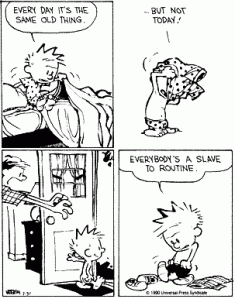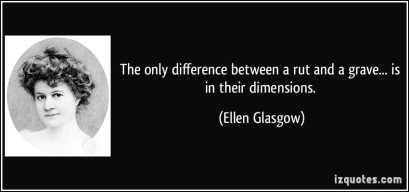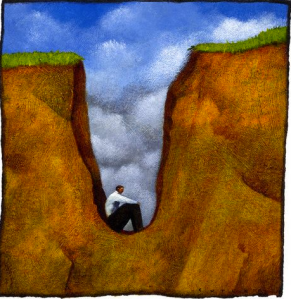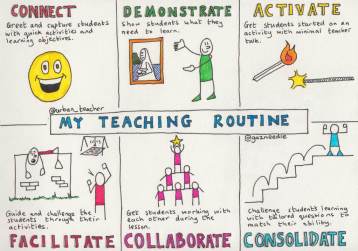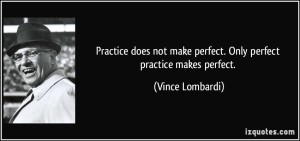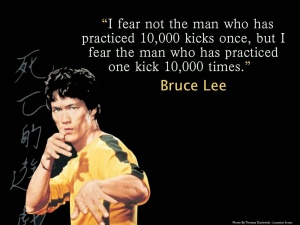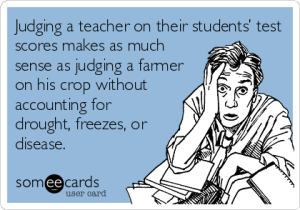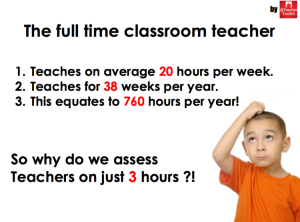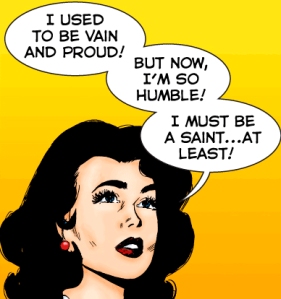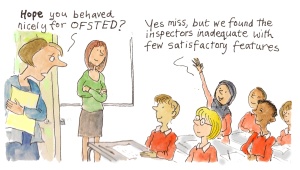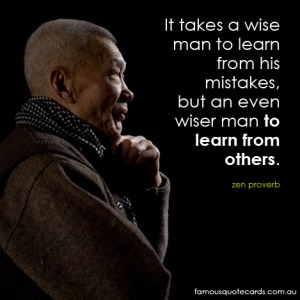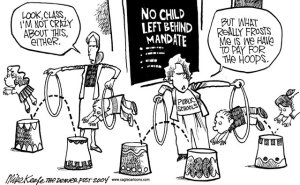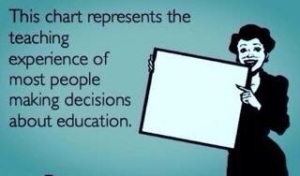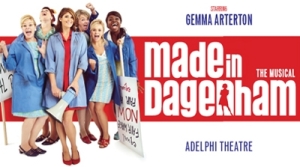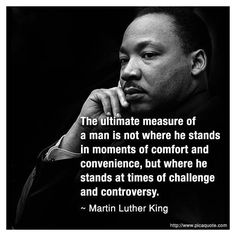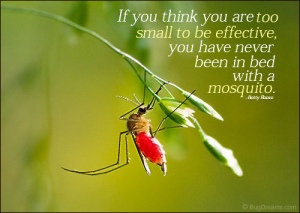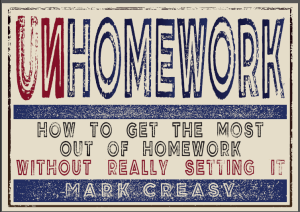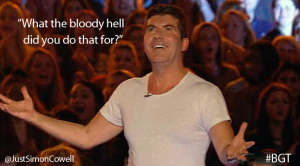Just to let anyone who has followed me, or accessed my blogs on here know I have a new website where all future blogs – including my one from yesterday ‘Why I want to be a mosquito’ can be acessed. I hope you’ll join me at:
Category Archives: Education
Old dog, new tricks
This post is about appreciating it’s never too late to learn and that sometimes we need to simply re-think our own thinking and practice to get better results!
Following my (self) revelatory posts about changing my morning routine (here) and how I had adapted my lessons to take account of my PE teacher background (here) I was delighted to chat to a colleague who shared his own moment of revelation with me, providing the inspiration for this post.
Howard is one of those colleagues that many schools have – or I believe should have! He’s been here over 20 years, seen 2 generations of some families – he has promised that he will have retired by the time the next generation arrive though! He teaches PE, has a fantastic knowledge of sports, particularly football and athletics and is one of the most caring people I have ever worked with. He genuinely puts himself out for staff and students alike, he doesn’t do it for any plaudits or celebrations.
As a tutor he has few peers and delivers amazing assemblies – galvanising staff and students alike about safety as the dark nights of October half-term approach, as well as sharing his passion for nature, especially the bird and butterfly counts. Beyond all of this he has such diverse interests that a few minutes chatting with him refresh you and make you feel better – I can say this in all honesty as I’ve been his assistant tutor since September and have witnessed this all first hand.
However, I wanted to share with you his recent revelation (I do have his permission!) about a practice he has just designed and the impact it has had. The best thing is it is adaptable for ages and abilities and can be played individually or in teams, plus – whilst Howard is a football specialist, we have looked at how we will now use it for hockey, basketball and netball! The simplicity of the practice is its beauty it requires a few cones and allows the teacher to observe everything and everyone easily.
As you can see from the diagram the children are set up in zones and from this the play can be:
- Individual – pass between the cones for 3 points, hit a cone 1 point.
- Challenge – move the cones closer/ further away depending on the player.
- Used for alternate feet.
- Used to develop pivoting with a pass in one direction, pivoting and then passing in the other.
- Partner – who can get to 10 first? Or how many can you score in a minute
- Team – as for partner.
- Also, if the cones are coloured you can create teams across the space.
Then from this diagonal passes can be developed to teach the idea of the wall pass, which can use exactly the same games as above, just between 2 sets of cones, or for even further challenge, maybe from one part of the court to the other.
So, following Howard’s example, what could you introduce that is simple, yet devastating? Is there something which, if you think about it, you could introduce and then have a great impact on your learners? Maybe use the Easter break to redevelop and develop, rather than try to immerse yourself in new things. Like Howard, you might just surprise yourself!
How do you unite your school?
There are many things that I love about working in a primary school, but the past week is one of my favourites, the week when all of our work on the Take One Picture ideal comes together for an exhibition of work from our EYU (nursery) to Year 6. For the uninitiated the idea is that, using a picture from the National Gallery, all lessons for a week (or two) are focused on aspects of that picture – trying to avoid tenuous links, e.g. Maths – counting what’s in the picture.
As I said in my last blog post about morning routines (here) my Maths classes loved working on a theme, to develop their maths skills across a range of themes.
Although the National Gallery’s choice of picture was ‘Mr and Mrs Andrews’ by Thomas Gainsborough, our school focused on the work of Victorian artist Marianne North, specifically picture 378. ‘Amatungula in Flower and Fruit and Blue Ipomoea’, painted in South Africa.
Having been trained to teach in secondary I can honestly say that, in 14 years of teaching in secondary schools there was nothing as unifying as this process. Yes, successful sports teams and music or drama performances created a great team spirit, but nothing that brings the children together like Take One Picture.
The sense of anticipation amongst the children is only just ahead of that amongst the staff, where everyone wants to see what each other has done and (sometimes inadvertently) share teaching and learning ideas. The vibrancy of the display is down to our fabulous Art and Technology Department, I’ve learnt so much from; Susie, Sam and Jac over my time here – even to embrace mess and my artistic side, but their vision carries everyone along in producing amazing work to showcase the children’s talents.
One of the main enjoyments, especially as a Year 6 parent, is seeing what the centrepiece will be, as this is traditionally created by the senior children in the school in their Art and Tech lessons. Last year for Uccello’s ‘Saint George and the Dragon’ they created a wonderful scale dragon, using tissue paper and wire for the centre of the room which was certainly eye-catching. This year, was an amazing 3D recreation of the Amatungula work of Marianne North, which hung on specially constructed panels at the back of the hall and drew everyone’s focus immediately.
The sheer variety and focus of the work always staggers me, from the beautiful miniature gardens created by our EYU children (see above), to these stunning examples:
For my Maths classes – as I know you’ll be wondering how I worked this into my lessons I focused on the journeys of Marianne North. This allowed the children to have a focus for developing a vast array of skills:
- Developing time knowledge by expressing Marianne North’s 60 years in different ways; decades, months, weeks, etc, etc.
- Measuring accurately between 2 points.
- Converting the measurement using a scale (1cm=850km) which required long multiplication – including of decimals for my Year 6 who weren’t allowed to round their measurements.
- Converting km to miles (standard in Year 6, an extension in Year 5).
- Working out time differences between 2 places on the map – then developing this to write (in 12 and 24 hour clock) the relevant times in both locations.
- Using a protractor to calculate the angle of travel between these two points.
This was all developed to then include destinations the children have visited, or would like to visit.
However, the richness of this work, I think, is added to because of the collaboration that occurs during the lessons. The children really do embrace the 4Bs principle here – I barely speak, apart from showing my appreciation for their ideas (bliss for them!) I also love the creative presentation they demonstrate, they almost try to outdo each other in making their work eye-catching. Here are some wonderful examples:
For my Science lesson (I had one double, 100 minute, lesson with Year 5) I decided to have some fun – plus to really challenge the children’s thinking. As this half term’s work is on sound and the ear, I used that for inspiration to work around the question, ‘(How) do plants hear?’ The lesson started by watching a clip from Little Shop of Horrors to open the discussion, that if Audrey talks to Seymour, how can she hear him? From this the children:
- Discussed what their thoughts were.
- Read an article about Prince Charles talking to his plants. (here)
- Tried to identify on a plant cross-section where a plant would hear from (as we all acknowledged they don’t have ears!)
- Worked in a 3 to design an experiment to test the hypothesis that a plant can hear – ensuring fair tests, as well as some ingenius ideas for recording measurements and reactions, including a super slow motion camera!
- Finally, after much debate looked at the work of Mythbusters and The R.H.S, reported in The Telegraph, where we found out that sound does affect plant growth.
The children loved this aspect, taking a somewhat sideways slant on the work of Marianne North, plus not only linking it to our current topic, but looking differently at the topic we tackle after Easter – plants. (This is why I avoided looking at the life cycle of a plant, the cross-section of a plant and any of the more mundane things that have to be covered in the curriculum.)
Now, I know some colleagues will be looking at this thinking, but what are the drawbacks? Well, thinking about it, I would say that the following are possible:
- To properly display the work takes time and effort.
- If a proper exhibition is conducted, then a large space is needed – which probably means the hall is taken out, affecting lessons and lunches.
- There can be a simplification of the subjects to ‘meet the picture’, attempting tenuous links, rather than proper focused work that would be on the curriculum anyway.
But, in reality, that’s it. I firmly believe that the project is excellent and brings the school together around a common purpose. The curriculum content can (easily) be covered – admittedly, to the chagrin of some, not necessarily in a linear fashion, but as I think my Maths classes showed the vibrancy and potential is huge.
One final thought, this year, our Take One Picture work was conducted throughout the inspection week! The inspectors were impressed about the depth of learning and the cross curricular links established and how the engagement was so high. Therefore my challenges are, what do you do to unite your school around a theme? What could you do? How could you deliver your curriculum differently – in a cross curricular manner, perhaps even across year groups and phases?
What’s your morning routine and how does this reflect your teaching?
What’s your morning routine?
I know this is a bit of a strange question to start this piece, but, seriously what is your morning routine? Look at the pictures below and decide in what order you would place them. What order would you carry them out, once you’ve got out of bed? (I admit not everyone will shave, or do all/ any of them, but please bear with me and have a go!)
Now I hope that you have, at least, considered your order – maybe for the first time. However, I am aware that some of you will have dismissed the ordering task altogether, not (I hope) because it’s pointless or too hard, but because you don’t have a morning routine.
You see, building on my last post about reordering the way I teach my Maths lessons (here) where I now carry out mental maths tests at the end of the lesson, rather than the traditional start of the lesson placement. This borrows from my PE teaching background, but even as I wrote it, light dawned on me that perhaps I was actually limiting me outlook. In fact, was there a danger of becoming more glam than punk, to borrow from Tait Coles’ wonderful book? In fact, my slow realisation, as I approached Easter, in the post Inspection bubble, was that I could easily slip into a rut – and we know how dangerous that can be…
Now, don’t get me wrong, for the inspection I changed nothing – in fact the children I teach actually commented on this, and (along with several colleagues) that I was remarkably relaxed. I always responded with the fact that I changed nothing, I used the #5MinLessonPlan for the inspectors, otherwise … But writing the last post, I realised the danger of this – and weirdly I realised this in relation to my morning routine. Yes, surprise, surprise, I have one (or I had!)
Mine consisted of; wake daughter up, shave (as she got/ woke up), shower, clean teeth (this allows time for deodorant to dry so no marks on clothes!), dress, eat breakfast, mouthwash, leave. See, it’s worse than having a routine; I actually had reasons for it – meaning I had considered it! And this realisation made me think about my teaching and how/ if this was approaching a similar pattern.
Now I’m a keen advocate of the works of; Jim Smith, Dave Keeling, Tait Coles (see above), Hywel Roberts, and others, plus wrote about working differently in my book Unhomework: How to get the most out of homework without really setting it. But a worrying thought struck me, what if my desire to be different and creative has actually become routine? The consideration has come as I thought about the serious impact that simply changing the structure of my maths lessons around and made me wonder, where next…? But in thinking that, it dawned on me, what if I was the blocker to the progress for the class? Has my spontaneity and doing things differently become too ‘off pat’? Have I actually developed a ‘routine’ rather than being ready to engage – especially if I have done so in my everyday life, in as far as getting ready for work?
Now this doesn’t mean that I criticise the above, in fact I have revisited for inspiration as this shows how I can do this, but ensure I can do so in different ways. So, what has happened? A few things actually!
- There is now no clearly identified pattern to lessons – save for the mental maths test ending a lesson.
- I’m using a wider variety of music in lessons (thanks Nina Jackson!)
- We’ve loved using Marianne North’s paintings for inspiration (that’s the next blog – just decided) from the Take One Picture
- We’re having more laughs – joke telling and friendly banter, often at my expense, showing my fallibility. (Thanks to Dave Keeling and Stephanie Davies). These are useful to introduce topics too; e.g., “What does a female frog wear under her blouse?” An algaebra (Ba dum tish!)
- Thanks to Make it stick: The science of successful learning I am using far more.
- I am reading far more, I have always tried, but have been finding too many excuses not to (from recent reading thanks to; Rachel Jones, Oliver Quinlan and Simon Pridham for your impact on my classes!)
- As promised I am blogging far more – I may not be setting the world on fire as yet, but I am enjoying it and it’s allowing me to rethink my work and refine my teaching further.
So, as expressed in my blog about what teachers can learn from musicals after watching Made in Dagenham I am ensuring I re-establish my righteous indignation and challenging myself to remember the sage words of Steve Jobs
It’s certainly keeping my family on their toes of a morning!
What can class teachers learn from PE teachers? (What I’ve learnt from myself!)
Do you ever have one of those moments of revelation that makes you feel really, really – I mean seriously, stupid? In fact, astounded about your own inadequacy of thinking?
If not, you’re lucky! However, if you have you can empathise with the one I had one the other day. It may not be revolutionary to many of you, but it has made a huge difference to my learners, so I want to share it for your learners’ benefit too – in case you haven’t had this moment of revelation too.
For those of you who do not know me, I am secondary trained PE teacher – though I now teach Year 5 and 6 in a primary school, but it was with reference to my former career in PE that I have drawn for inspiration. After I realised the positive impact the simple change has made, after a moment in the smug zone – I felt truly incredulous at my own stupidity for not realising it before!
It all came when I was looking at my classes’ mental maths scores and thinking about how I could improve them further. Previously I had looked at a variety of ways of doing this, trying to apply Sir Dave Brailsford’s idea of marginal gains and considered applying my PE training to best effect. For example, using the idea of practising as you expect to perform we now always use actual SATs questions – in Year 5 and 6 lessons, so they’re not so scary in the actual test. In fact, every so often I play the actual audios so the practice is even more real for the learners (obtained here):
I’ve also used the repetitive practice model, which I’ve read more and more about recently, so that the children will rehearse the same questions every few days to eliminate errors and ensure they understand the theory and workings behind them – as well as where they went wrong in the first place.
Ironically I now realise that I first ‘thought’ about this as a swimmer, with the endless repetitions of specific skills to hone them, especially things such as starts and turns. I returned to these ideals when I started teaching, getting learners to develop and cement skills – for example a lay-up, by repetitive practice – admittedly back then I hadn’t read the theory behind it! Over time I have also had this model reinforced by being married to my wife who is a physiotherapist for spinal cord rehabilitation (at Stoke Mandeville), where the patients have to repeat processes to re-establish the neural pathways to make the movements instinctive again.
All of this, along with encouragement and guidance, led the children to achieve a regular class average of 7.5, up from 6.2 and also created a much closer range of scores than previously. However, I hoped for more for them, how could I add another mark on average, at least? Then I had my moment of realisation – the one that has made me feel stupid for not realising it before!
I thought to myself about what I could try next and thought about successful teams and lessons in PE that I have taught and then it struck me:
Don’t start the lessons with the mental maths test, do these at the end! This means that the plenary is now a warm-up, the activities continue and then, once the children are fully immersed in the Maths we do the mental test at the end of the lesson. Hardly revolutionary for some of you out there I am sure, but what an impact! The class average has leapt from 7.5, through 8.5 to 9.2! The children understand why we have done this; I have explained the PE/ sport maxim to them and they have seen the evidence in the scores.
By ‘flipping’ the learning it has had a dramatic impact, and thanks to the children being Year 5 and 6 I appear to be a genius! The best thing is, nothing has really changed, except their scores have increased and they feel much better. We take the same journey in each lesson as we used to; we just ‘visit the sights’ in a different way.
The fact that is so simple makes it all the better – or worse as I kick myself for not realising it before. Having worked in secondary schools where GCSE breakfasts were held for the children, having seen colleagues run 8am preparation sessions before a 9am exam and thinking about the sport example it is all so obvious, NOW!
So I ask you to look at your lessons. What could you do to change them around? What impact could this have? And for those thinking, but what about… (fill in your own blanks), use the Dr Pepper maxim, what’s the worst that could happen? Wouldn’t it be great if one small change could make such a huge change as it has for me, which has allowed me (thanks in part to this cathartic post) to put my sheepishness and self irritation aside and celebrate what the children have achieved and start thinking, what next…?
Reflections on an inspection
I ended my last blog post, ‘How are you judged’ – where I looked at the judgement teachers receive against that of Wayne Rooney, with the following 3 questions:
- How are you judged?
- Who judges you (that you value? [Also if children aren’t part of your answer, give up teaching, please!]
- Do you recognise any underperformance in yourself and what do you do about it?
This post was prompted by an I.S.I inspection team arriving at my school last week and I was delighted that it received support and plaudits from colleagues, especially mrcjbolton who wrote along similar lines (click here) in relation to Ofsted. Though I admit there was more articulation and thought in his post related to greater research of facts and quotes, whereas mine was a response piece and I think it’s well worth a read.
So, before I look at the inspection itself – without revealing anything about its outcomes as the official report isn’t published for 4 weeks I feel I need to answer my own questions.
How are you judged?
I’m not going to engage in the whole teacher grades debate, there’s far better writers on that front than I (though I will mention it later in the piece about our inspection), but I am interested in how we are judged as teachers. Having been a teacher for 18 years now I have seen how teachers are judged change, but many things still remains the same. I think there are now greater pressures on our performance, we are not just judged by observations, but exam results – or student progress plays a far greater role than when I entered the profession in 1997 (just 4 months after Tony Blair entered Number 10!)
The trouble is, that despite all of the differing, competing pressures, much of our judgement still boils down to simple data. This – I firmly believe, is a good way to achieve a ‘divide and conquer’ mantra as successive teachers are judged on the performance of their predecessors. A simple, ‘based on prior performance child x should achieve…’ dialogue pervades everything, thus setting teachers against each other. This has led to many developing the idea of teaching our children as if we were to inherit them at the end of the year. However, as often happens, it’s easier to look at the previous teacher/ school and question them instead; surely the teacher assessments were inflated? The expectation of matching national expectation must lead to cheating? They must have spoonfed him/her to get these levels/grades?
This focus, is as ridiculous as just judging teachers purely on lesson observations – as @TeacherToolkit shows here:
Therefore, to me, teachers need to be judged on their teaching – shocking I know, but true. Not in a simple ‘show’(off) lesson as for inspectors or SMT, but across a range of lessons, with different learners, in different contexts as Tait Coles @TotallyWired77 explains in his excellent book ‘Never Mind the Inspectors, here’s Punk Learning’. Which leads to…
Who judges you (that you value)?
In my view I am lucky that I am judged every day, by every class I teach. Thanks to working with my classes on getting them to understand how they learn and to challenge them to think about thinking, I know they judge my performance every day – in fact I encourage it! I know that some others would disagree, but to me our learners are best described in the poem ‘I am part of a lost generation.’ And as such I think it’s important they judge me, they see the reality every day and (rightly in my opinion) can judge me honestly – it’s essential that they do, for their own sakes!
Similarly I think my peers, teaching and non-teaching are important in judging me as they can share in the work in the classroom. I have been fortunate to be part of some great learning pairs and triads, where we had mutual support and encouragement, with a clear professional dialogue for each of our development. This allowed us to discuss ideas, plan to try them out and then review them together for our own and the learners’ progress – either as one of us could do something and was sharing it with the others, or we were trying something together (it’s how I first used SOLO). Similarly, to me are the TAs/LSAs I have worked with – they have a clear insight into my lessons. Again, as with the learners, they see me on a regular basis and can provide valuable insight into how things go. Even now, despite having taught for 18 years, I find it hard to believe how TAs are undervalued in many schools and simply seen as extension of SEN children, not really engaged with beyond that. What a waste!
Do you recognise any underperformance in yourself and what do you do about it?
However, the greatest judge has to be me. I have to judge myself – honestly, not unaware of what actually goes on and building myself up to be a legend in my own lunchtime:
At the end of a lesson, I need to know how it went, what could be improved and then do something about it. A while ago, in a Q&A session when I was delivering training, I was asked the difference between a good and a bad teacher. I said that there was no silver bullet, but one thing that had served me well in my teaching career was break time in the staffroom. In my experience, the good teacher comes in and says, “I can’t believe I didn’t think of ____ in that lesson, if I’d thought of that then ___ wouldn’t have happened and…” Not to beat themselves up for the sake of it, nor those who say it for everyone to then give them plaudits about how wonderful they really are (and boy have I known a few of them!)
No these colleagues do it knowing that whatever ‘grade’ a lesson may be, they can (and want) to improve their practice. They also have the reality that we all deliver lessons that we could do better with. I may have the ambition to teach every lesson well enough for my own daughter to be in it, but at times I deliver one that I’m glad she isn’t!
However – back to the answer and the staffroom. The bad teacher comes in and says, “Bloody kids, I had the perfect lesson planned and they ruined it. I spent hours on the copying/ laminating/ organising/ etc and they couldn’t care less.” On occasion this has been followed by a comment along the lines of, “Well, that’s the last time I do that for them!” The frustration of the lesson not going as envisioned is understandable – not going to plan isn’t a problem in my book, some of my best lessons haven’t gone to plan because a spark has taken them elsewhere. No, what’s unforgiveable is the ‘that’s the last time’ comment and what marks these colleagues out to me. This is why accurate and honest self reflection is so vital so that we can progress ourselves.
So, with that in mind, how does all this relate to my experience in the recent inspection? Well, given that it was my first inspection under I.S.I rather than Ofsted I was intrigued and, as I can’t reveal how the actual inspection went – I wouldn’t want to do that to my colleagues either, I do have two main observations in the immediate ‘aftermath’ of the experience:
- Ofsted provide a short notice of an inspection, I.S.I make contact on a week ahead of coming. Now, as with all schools, we had an idea we were ‘due to be done’. We had been clearly preparing since September, but the preparation time was – to me, reminiscent of the pre-Christmas build up I witnessed as a child, where everything would be ruined if even a salt cellar was out of place on the day.
I had a great weekend with my family, allowing me to be a dad and husband for 2 days – other colleagues were working (pretty much) all weekend, even in school for a lot of this time. Surely it can’t be right to have excellent colleagues put into this state, especially when not everyone was observed? (I wasn’t observed, but I didn’t find it a stress wither way – my planning was eased thanks to @TeacherToolkit’s #5MinLessonPlan) Some colleagues support no-notice inspections, I’m not advocating those, but surely there has to be a better way than this?
- Lessons were graded, but these were not revealed to the SMT – there is only an overall judgement on teaching across the school. I also find it strange that there were no joint observations as a means of checking the leadership’s understanding of teaching across the school – then again the T&L Policy is not an A Policy in an ISI Inspection.
Furthermore, nor was there time for any feedback to those colleagues observed. Why not? Surely, if an inspection is designed to move a school forward, then those observed – especially given what I have outlined in point 1, deserve the courtesy and respect to have some reflection on the experience and points on how to improve their practice. Especially as the I.S.I framework states:
“…support school development and improvement.”
If this isn’t underpinned by teaching and learning, can a school really develop and improve?
Even better, what about being able to meet the colleagues who have worked so hard and having the opportunity to not only thank them personally, but also to meet and discuss with them things observed that the inspectors would like to take back to their own school (given that many I.S.I inspectors still work in schools). Surely that’s a great benefit to being an inspector, whilst still working in a school?
So, with school starting to get back to normal tomorrow – well normal, apart from our preparation for our Take One Picture Exhibition and Open Morning as well as Comic Relief at the end of the week, numerous sporting fixtures, etc, etc! I wonder what impact the last week will have? I say last week, but the reality is nigh on the past 2 terms have been impacted as anticipation has built and then reached a crescendo once the call was received a week before the inspectors descended until they left Friday evening.
I know with three weeks until Easter that my colleagues will continue to be as professional as they were previously – the inspection won’t change that, but in reality I return back to two of my previous questions:
- Who judges you that you value?
- Do you recognise any underperformance in yourself and what do you do about it?
You see, we should value the judgements of the inspectors, but shouldn’t we actually know ourselves best? The best schools will already:
- Monitor learners’ progress.
- Know the strengths and needs of their teachers – through observations and their own feedback.
- Survey parents, learners and staff.
- Provide a rich and diverse curriculum, inside and outside the classroom.
- Make PSHE an important element of the curriculum and seek opportunities to develop it in as many ways as possible.
- Ensure that all statutory and regulatory requirements are met. [I put this last as it seems to get FAR too much importance elsewhere. To me T&L are the first two priorities.]
So, if that’s all true, what’s the point of any inspection – more so if it only tells you what you already knew? With an election upcoming I doubt much will change (more’s the pity) but what a shame that it appears an inspection is something to be suffered, a box to be ticked and not a real opportunity for the entire system to improve.
How are you judged?
This blog is a start at how teachers are judged, prompted by my school undergoing an I.S.I inspection this week – about which I will write more next week when it’s all over.
However, after last week’s blog about musicals, I turned my attention to other entertainers and how they are promoted – probably because the main source of last week’s blog Made in Dagenham closes at Easter. Considering all different areas and thinking about how they are judged compared to teachers and teaching, where everyone appears an expert, based on the fact that everyone has experience at some level or another:
I admit I was struggling for inspiration. Then, Saturday afternoon, it happened, I found the inspiration I had been looking for – Wayne Rooney scored for Manchester United against Sunderland.
Now I need to make it clear I’m not a Man U fan – in fact I have always supported Spurs (I say that in the hope of garnering some sympathy if nothing else!) No, the reason this struck a chord is that his two goals last weekend were the first he has scored this calendar year. This got me thinking:
1. Wayne Rooney earns £300,000 a week.
2. This is 9x my annual salary.
3. He gets bonuses for scoring and for the team winning.
4. None of this includes his endorsement pay!
So I wonder, how long this ‘performance’ would be tolerated if it was a teacher? Who can forget Chris Woodhead’s claim about there being 15,000 incompetent teachers in the profession – which frequently resurface, including in a TES article about a Panorama programme?
Clearly Wayne Rooney has pressures and I wouldn’t want those – performing and trying to meet the expectations for thousands every time you step out to do your job, which is all playing football is, a job. Added to the fact that millions (of opposition fans) want him to fail, plus being England captain, it must be unbearable – whatever the remuneration is. Yet, I was interested in an interview with him after he broke the drought where he said he didn’t worry about others, he was his harshest critic – he had scored before, he knew he would again and just kept working hard.
Can education, or more specifically teachers, have the same mantra? You see, with inspectors in the school this fascinates me – not because I think my colleagues are underperforming and need to worry, but who do we do it for? And, if underperformance is there, could we continue with an ‘I taught good lessons before, I know I will again if I keep working hard’ attitude?
I honestly don’t think that would wash. Because, in my opinion, teachers have pretty much the harshest critics of all – children! (I admit doctors; especially cardiac surgeons may disagree, as clearly they have more life and death decisions) Could we get away with underperforming for 2 months, with that simple mantra in our head? Indeed, could we just carry on working hard (or harder)? And then, if we suddenly performed, would everyone come and congratulate us, kiss us and watch us knee slide across the playground? I think not!
Therefore, I ask 3 questions – ahead of the conclusion of our inspection and further considerations:
- How are you judged?
- Who judges you (that you value? [Also if children aren’t part of your answer, give up teaching, please!]
- Do you recognise any underperformance in yourself and what do you do about it?
What can teachers learn from musicals?
What’s your favourite musical?
This is a tough question for many people, especially as they consider offerings from both stage and screen and perhaps, even define what makes a musical. For example, before launching into naming any choices, is Jailhouse Rock a musical? To me, a self-confessed Elvis fan, it’s not, yet it appeared in Channel 4’s 100 Greatest Musicals a few years ago (but then again so did an episode of Buffy, so maybe not the best guide!) However, to other people it is as simple a definition as action, interspersed with songs – but then, by that simple measure, surely almost every Disney film is a musical too?
But, here’s a different question. What’s your favourite musical – as a teacher? Is there one for you? This thought also links to this recent Edutopia blog about films that teachers should watch click here.
Now I’m sure that there are many laudable musicals that can be related to education and children’s development, or make comments on society and their place within it. The social context of Hairspray immediately springs to mind, as does the respective historical contexts of Oliver and Billy Elliot.
Similarly, recent productions of Roald Dahl’s Matilda and Charlie and the Chocolate Factory also have clear messages that can be linked to education and learning. However, as with the multitude of other musicals where children feature, none of these automatically refer directly to education itself. Therefore, I offer an unconventional suggestion – after seeing it last week in half term, I believe Made in Dagenham, at The Adelphi Theatre, is perfect for teachers and should be seen by everyone who can!
Now this is not to say that it is focused on education, clearly it is not. Nor are the children the main stars – although they are very good. No, it is because when I left I felt ready to storm barricades and stand up for a cause – the one in the production is equal pay for women, but mine is education. Never have I left a musical and felt so inspired to do something to make a difference. But it’s the something which is important!
I know when I have left other musicals I wanted to go back and see them again immediately (The Jersey Boys, Buddy, The Rat Pack and Mamma Mia!), or felt emotionally drained (Les Miserables), but after Made in Dagenham I felt uplifted in a different way. Throughout, despite it not being a contemporary piece, I found myself fired up with the situation of the women (I fail to see how anyone could watch it and not be).
Perhaps I found myself more fired up than some because I have just read the wonderful Debra Kidd’s amazing book ‘Teaching: Notes from the front line’ and there seemed (to me at least) a wonderful link between this and what I was witnessing? Throughout the book Debra Kidd provides real evidence of things that should fire up all educators – an excellent review was written by @TeacherToolkit (here) who even says it’s a book he wishes he had written, praise indeed!
The more I watched, the more I was reminded of an anecdote I heard Sir John Jones deliver and is recounted in his book ‘The Magic Weaving Business’ where he links education to the American Civil Rights movement
(This is all the more ironic as this is also the case in Made in Dagenham. “Did Martin Luther King ask for __% of equality?” is a common question throughout, as is the response, “You know they shot him, don’t you?”)
However, as Sir John Jones says, for ‘The Calling’ [teaching] then passion and wisdom need to be intertwined with righteous indignation, that is
‘A burning, simmering sense of frustration, anger even,
at the injustice and unfairness of life’.
So, beyond these links, Made in Dagenham has spurred me to ask, teachers, where is (y)our righteous indignation? Now, don’t get me wrong, I think there is plenty of [unrighteous] indignation in education. But, to me, this is to too many people’s benefit as things which should be afforded our outrage are glossed over in favour of more, tribal differences; thinking hats, VAK, Brain Gym, how to teach phonics, etc, etc.
Therefore, I wonder if, like the women of the musical we should not have more, unified, righteous indignation. Perhaps, we’re too tired, too blinded by other issues or just think we can’t do anything to make a difference?
But I think that’s what is counted on! Far easier for small pockets of resistance to be quashed and a mantra developed against them (Michael Gove, Toby Young et al vs ‘The Blob’ anyone?) and so people turn attention and ire to more, mundane and unimportant issues. I know in the past I have found my day full of, incredibly, minor irritations – brightened by time within the classroom, but these have hidden the real ‘enemies’ I should be raging against. Those that want to change education, to tinker for no real good reason and certainly not for the benefit of the learners – despite protestations and (often) slick media presentations. Citing ridiculous examples (dealt with in full in Debra Kidd’s book) for us to follow, without realising that education is not an entity in itself, but is part of a much bigger picture (for example countries often cited for the UK as models to follow have much higher teen suicide rates! Should we copy that too?)
As Debra Kidd says, “We are, at the time I write this, in need of a revolution in education.” And I couldn’t agree more. As someone who went to school in the 80s and saw its effects, I don’t advocate the strike action pursued by the women in Made in Dagenham and demand ‘Everybody Out’, but I would love it if we could find more righteous indignation about the issues that really matter. For example Twitter is a wonderful place, great for CPD and sharing ideas, but too often sees disharmony – debating ideas is great, but open vilification? Hmmm!
For what it’s worth, I put forward the following:
- Read Debra Kidd’s book
- See Made in Dagenham at The Adelphi Theatre (be quick, it ends April 11th!)
- Find your righteous indignation
Then do something about it, share, discuss and challenge at the very least – especially in this year of a general election, if not two!
My Unhomework
As half term draws to an end, as ever my mind turns to my perennial question on returning to school, “How can I be a better teacher than before the holiday?” I have got ideas a plenty from having time to catch up on reading, as well as having had the time to experiment with different electronic support which will engage and motivate my classes further.
However, as a dad and husband the week off also includes chores (yawn) but the sorting of ‘stuff’ meant that I was able to reminisce about last Summer when we went to Majorca. It was a great holiday and very relaxing, during which – as ever, when chatting people find out I’m a teacher and the conversation takes a familiar and predictable turn from, “I couldn’t do your job,” to “Lucky you all those holidays.”
However, thanks to having an incredibly sociable 10 year old we met a great family from Huddersfield and I got talking to (and drinking with) the dad – a firefighter of 20 years. Maybe it’s the years of watching drama on TV and film, I still love Backdraft after all these years, but I have always admired and respected firefighters.
So, even now recalling it, I was more than a little surprised when he said, “I take my hat off to you, I couldn’t do your job for all the money in the world!” When I voiced this shock, he said, “I’d rather run into a burning building than walk into a classroom.”
From this our conversation turned into respective highs and lows of our jobs, especially as we’ve been in our jobs for about the same length of time and both love them. “So, what’s the best thing about your job then?” he asked. Now, I wish I was as eloquent as Se7en with his exposition ‘I Teach’ but I reeled off a long list all the same.
Now, 6 months later, I have reflected on my answers and realised I forgot one.
Being a teacher you get at least 2 chances at making a New Year’s resolution! Though I try to work that into 6 chances, reflecting each half term on improving practice and moving my learning forwards – which is certainly easier for me to follow than eating more healthily and exercising more! This reflection reminds me that I did want to blog more too. I could convince myself there were reasons for missing out on writing it, but when I see the voracious output of others that wasn’t true as this shows:
Therefore, starting a new half term allows me to restart a resolution. But, then comes a new problem – what to write about? I wanted it to be about something that means something to me, but is reflective of my beliefs and is more than just a rant, or a reworking of my book
available on Amazon
Then, last week, inspiration hit!
Thanks to a colleague, I have found myself in school every Tuesday doing something that I wouldn’t have imagined I would not so long ago. Moreover, it’s something that my daughter couldn’t believe – nice to know I still have the ability to shock her! Admittedly when she realised I had been telling the truth about me being in the staff choir my daughter’s reaction was similar to what Simon Cowell’s probably would be
Whilst it’s true I am a huge Elvis fan and have a various amount of music knowledge and love singing, unfortunately I am more of a legend in my own showertime than much else. However, I decided that I would get involved and not change my mind and ‘wimp out’ despite being tempted to! This has led to performances in assembly and at a school concert and despite the butterflies appearing every week I can genuinely say I have loved it – thanks Susannah!
So, as I return to school next week, I ask myself, “Where’s the next challenge?” I believe it’s important that teachers are prepared to show they take risks and push themselves to where they might fear to go – not in the name of showing off, but putting our money where our mouths are to our learners. Don’t remember what it was like when you were at school, having to try something new in front of people – scared in case you fail and suffer humiliation, but ultimately be grateful that you don’t have to do it anymore. Experience something new and remember the wise words of Samuel Beckett
Let’s see what this half term brings – though more frequent blog posts are certainly one!

